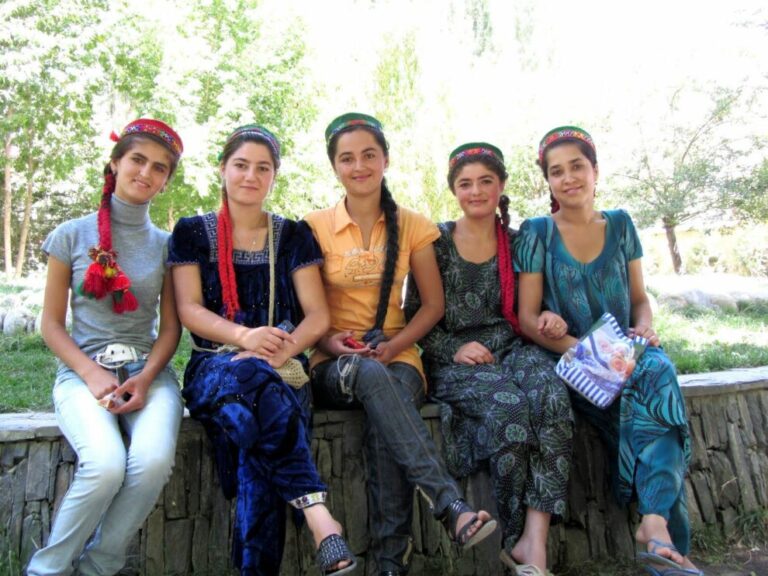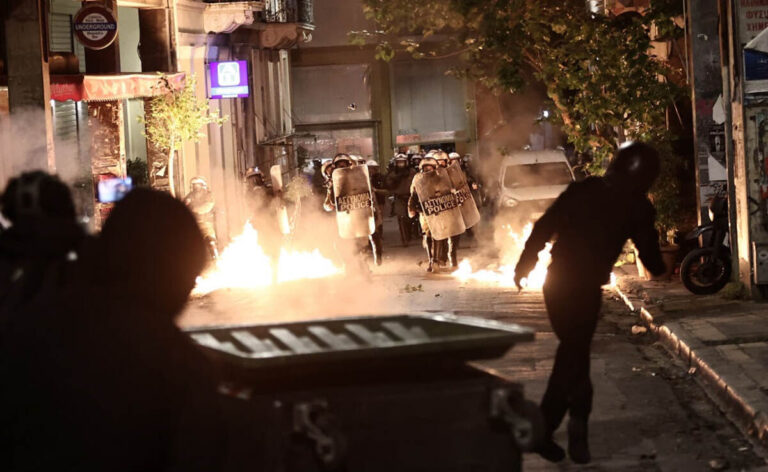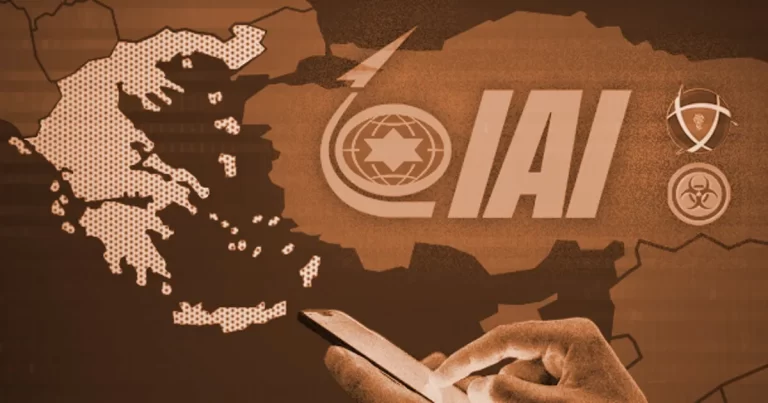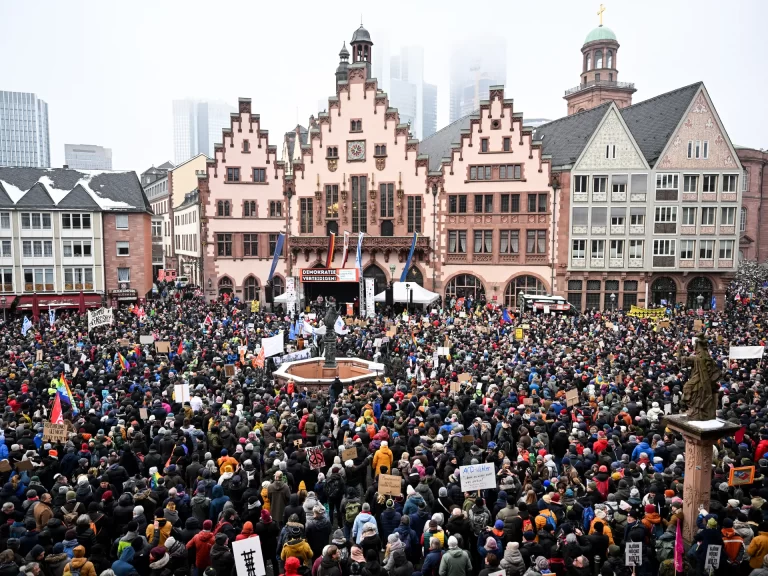The Greek National Anthem is one of the most recognizable anywhere in the world, and it is the longest of any such song, written by the country’s “National Poet,” Dionysios Solomos.
Its title is “Hymn to Liberty” (Greek: “Yμνος εἰς τὴν Ἐλευθερίαν”). It was written as a 158-stanza poem in 1823 on the Greek island of Zakynthos and printed one year later in Missolonghi.
The Solomos poem was inspired by the brave men who fought in the Greek War of Independence and Greece’s incredibly long, rich history.
In 1865, the King of Greece, George I, visited Corfu and heard the island’s philharmonic band performing the first three stanzas, which had been set to music by the operatic composer Nikolaos Mantzaros.
The King was so impressed that he ordered the band’s music to be played during official events; thus, “Hymn to Liberty” instantly became the National Anthem of Greece.
Beginning in 1966, it became the National Anthem of Cyprus as well after a decision by its Council of Minsters.

Greece’s National Anthem describes scenes from the War of Independence
The “Hymn to Liberty” deals with several themes from the War of Independence and other events from the long and illustrious Greek history.
The poet presents the goddess of liberty and recalls the past martyrdoms that occurred during the history of the country and the revolt of its “slaves” under foreign rule as well as the joys of being a Hellene.
Solomos also speaks of the the disdain European rulers had for Greece and the contemptuous indifference of the Greeks for their pro-Ottoman stance.
In stanzas 35 to 74 of the Greek National Anthem, the poet describes the battle and the fall of Tripolitsa, the Turkish capital and stronghold of the Peloponnese.
Stanzas 75 to 87 speak of the Battle of Corinth and the destruction of the mighty army of Drama Ali in Dervenakia.
The first siege of Missolonghi in 1822 and the drowning of the Ottomans in the river of Acheloos are described in stanzas 88 to 122 of the song.
The courageous naval engagements of the war, mainly the burning of the Turkish flagship near Tenedos, are described in stanzas 123 to 138 as well as the Turks’ barbaric hanging of Gregory, the Patriarch of Constantinople.
In the Epilogue (stanzas 139 to 158) of the Greek National Anthem, the poet advises former fighters to rid themselves of their harmful discord and petty differences and urges the powerful of Europe to allow Greece to be fully liberated.
The Greek National Anthem in English rhyme
1. I do know thee by the direful
cutting edge of thy keen sword
I do know thine eye stare ireful
counting fast the lands restored
2. Thou camest forth off the departed
Greeks who died and lived for thee
and like erstwhile stouthearted
Hail oh hail thee Liberty
3. There inside thou wert staying
reticent, embittered too
for a summon thou wert praying
telling thee come back anew
4.That good day was always tarrying
every thing was mute around
for oppression was scaring
and by slav’ry they were bound
5. Woe is thee! Thine only solace
sitting lone telling with sigh
glories past when thou wert aweless
and recounting them to cry
6. And awaiting the inviting
liberal strong voice to dare
thine one hand the other smiting
out of sorrow and despair
7. … saying will, ah! will I never
raise my head from these lorn wilds?
From above replies as ever
wails, chains, fetters of all kinds
8. Then thine eyes thou’dst lift up weeping,
hazy, full of tears and red,
on thy dress unendly dripping
gobs of Greek blood vainly shed
9. With thy clothes blood-soaked and reeking
I would thou kepst on sneaking out
to the foreign countries seeking
further hands both strong and stout
10. All alone thou hadst departed
and thou camest back all alone
for the gates will not get parted
when ’tis need who’s knocking on
11. Others on thy bosom crying
but they offered no respite,
others help with words supplying
but were fooling thee on spite
12. Others, woe! by thine misfortune
were delighted and would bray,
“go away to join thine orphans,
go” the obdurate would say
13. Now thy feet homewards toil
and they overswiftly roll
on the rock or on the soil
which thy glory do recall
14. Overlowly it is bowing
triple-wretched thy sad head,
beggar. door to door who’s going
and their life a weight too dead
15. Aye, but now they’re counterfiring
all thy seed with urge and mirth,
and they’re seeking firm, untiring
either victory or death
16. Thou camest forth off the departed
Greeks who died and lived for thee
and like erstwhile stouthearted
Hail oh hail thee Liberty
17. When the sky beheld thy gumption,
who, for the oppressing brute,
in thy motherland with kindness
nourished flowers both and fruit,
18. … was relieved, and it started
an infernal blare to pour,
and to thee response had darted
Riga’s battle crying roar
19. Each one of thy lands have called thee
warmly greeting thee with wish
and the mouths are shouting boldly
what the heart wilt not dismiss
20. Yells that reached the stars in heaven
from Ionian islands too,
loads of raised hands keep on waving
showing how their cheer was true
21 …although chained and separated
each one with a slick decree
and their forehead decorated
with “Deceitful Liberty”
22. Heartily pleased and affected
was the Washington’s free land
and the chains had recollected
that detained her on remand
23. From his castle he is roaring
just like greeting what is done
and his mane he shakes storming
the Lion the Spaniard one
24. He was startled in his quarters
England’s furious beast who hath
sent to the far Russian corners
loud the growling of his wrath;
25. … with a posture clearly showing
how much muscle hide his arms,
in Aegean waves he’s throwing
an inflamed stare that alarms
26. Through the clouds above he spots thee
too the Eagle’s eye while his
wings and claws are growing doughty
on Italian carcasses
27. … and against thee he turns hostile,
since forever hating thee,
squawks and squawks the bloody foe while
trying to impede thy spree.
28. Yet thou thinkest about nothing
else than where thou shouldst go first,
thou repliest not, nor dost something
for all those who have thee cursed,
29. … like tall mountain which is letting
the brash filthy water flow
to his feet and just there setting
the foul scum that soon will go,
30. … which is letting the strong whirlwind
hailstorm too and heavy rain
to strike on with their harsh whipping
its eternal peak in vain
31. Woe to him! Oh woe to him who
fatelorn will be found abreast
thy keen sword and hath a whim to
stay and put it to the test
32. The foul monster is now thinking
that he’s missing his stray cub
erst he’s cringing then he’s springing
and he’s craving human blood,
33. … now he’s running through all forests
mountains, fields, ravines and earth,
where he stood or passed the harvests
horror, desolation, death.
34. Horror, death and desolation
everywhere thou hast passed too
for it brings thee indignation
en’my sword unsheathed to view
35. Behold, the walls that stand tall yonder,
Tripoli the loathsome pit,
judgement’s both and terror’s thunder
now thou wish’st to cast on it
36. Victories against the felons
filled the eyes with grit and grin,
blind to their inundant weapons
and to their war cheering din
37. Shaking fists at thee and grinding
teeth they try to show their scads.
Hearken thou not to the fright’ning
myriads, men and callow lads?
38. A few mouths and fewer eyes
will remain you open, shame,
to bewail for the demise
of all lifes the woe shall claim!
39. They come forth and started clashing
sparking battle’s lightning glut
muskets loading, firing, flashing
sword blades glisten, thrash and cut
40. Why’s the fight already ending?
Why’s there also scanty blood?
I behold the foes ascending
to the castle swift they scud.
41. Count! They’re numberless the craven
who are running for their life,
they prefer their backs shot graven
lest they stay and taste the knife
42. Stay locked in, we’ll soon advance there!
Wait until you sure attrite!
Wait, the end is coming, answer,
in the darkness of the night!
43. They responded and the battle
starts and sets the place afire
ridge to ridge the buzz and rattle
sounding turbulent and dire
44. I can hear the muskets plopping
and the swords that clang beneath
I can hear the axes chopping
and the grinding of the teeth
45. Ah, what a night this was, it
fills the intellect with dread!
There was nother sleep nor pausing
save the bitter of the dead.
46. The time and the place of action,
the ado, the screaming folk,
the extreme cruelhearted passion
marking war, the rising smoke,
47. …the loud blasts, the dark and hazy
setting pierced by fiery bursts,
closely representing Hades
eager to receive the curs,
48. …waiting for them. Countless shadows
showing, naked on their feet,
daughters, elders, laddies, widows,
babies hooked still to the teat.
49. All pitch-black ’tis now swarming
black the sepulchred sad crowd
like an acrid pall of mourning
on the deathbed, a dark cloud
50. Lashings, lashings massed unaltered
sprouting from the soil’s backstage,
all of them injustly slaughtered
by the rampant turkish rage
51. Many as the ears cradled
upon harvesting the fields,
almost all these parts were tangled
covered with these tragic yields
52. Here and there throughout the bustle
hazy starlight stirred the flock
as they headed to the castle
in a deathlike silent walk
53. Likewise at the plains below in
densely vegetated woods,
each time the half moon is throwing
little pale light that dilutes
54. in the winds, that softly rustle
through packed branches stripped of leaves,
the dim spots quake and jostle
where the offshoots touch their peers.
55. With their eyes they keep on glancing
’round to find the pools of blood,
in the blood they’re wildly dancing,
their hoarse growlings turn to flood
56. … and cavorting they are bunching
’round the Greek ferocious bands
and the valiant breasts are touching
with their lifeless wintry hands
57, This benumbing touch is going
deep inside the inner parts
letting out the grief they’re stowing
leaving merciless the hearts
58. Thus ’tis horrifyingly growing
this pernicious fighting dance,
like a squall unruly blowing
in the lonely sea’s expanse
59. High and low they’re striking madly,
each and every hit they land
’tis a hit severe and deadly,
without need for second hand
60. Every body sweating, churning
as if from within its soul,
sick of hatred fiercely burning,
strives by any means to soar
61. The beats of the heart are thwacking
in their breasts slow and miffed
and their arms whenever smacking
are two or more times as swift
62. For all them there is no heaven,
nor high sea, nor even ground,
for the upper world and nether
concentrate in their surround
63. The excitement and the fury
are so stark, as both sides strive
resolute, that makest thee worry
no man will be left alive
64. Behold the mis’ry cumulated
in these hands that rip life threads!
On the earth fall mutilated
numerous legs, arms and heads,
65. …scabbards, swords and baldrics,
sculls severed or slit in two,
brains lay strewn all over wat’ry.
steaming guts the bodies spew.
66. No one would pay even notice
to the slaughter just a bit,
they all forge ahead atrocious.
Stop! Enough! When will you quit?
67. No man deigns to leave as option
save for when he shall lay done.
They don’t feel at all exhaustion
as if they have just begun
68. Now the curs are getting fewer
“Allah” they are yelling loud
but the Christian lips are truer
“fire” “fire” is their shout
69. Lionhearted they are battering
foes hard, screaming always “fire”
the flagitious thugs are scattering
screeching “Allah” they retire
70. Fright and dust clouds in all quarters
painful sighs, the helpless cry,
all around faint moans and horrors
and all over people die
71. Oh how many! Yet the lead shot
doesn’t echo in their ears.
all now laying where the dead rot
when the fourth dawn sheds its tears
72. River the blood of the slaughtered
turning the ravine to slue,
and the innocent grass watered
with men’s blood instead of dew
73. New dawn’s breeze, how effervescent,
thou no longer blow’st across
to the foul-believers’ crescent
blow thou, blow thou to the Cross!
74. Thou camest forth off the departed
Greeks who died and lived for thee
and like erstwhile stouthearted
Hail oh hail thee Liberty
75. There behold the fields of Corinth,
but sun’s light does not get through
on the planetrees tisn’t pouring
or on vineyards, waters too
76. In the easeful aether, startling,
not a carefree sound would fleet,
not a fife’s jovial warbling,
not a lamb would only bleat.
77. Thousands of soldiers rushing
like the waves unto the shore,
but thy stalwart braves are dashing,
they keep count not anymore
78. Oh three hundred Spartans raise ye
on this land return anew
and your children proudly gaze ye
how much they resemble you!
79. O’er your braves the lot are shaken,
by their blinded stride apace
barred in Corinth they were taken
to hide out and shun the chase
80. Sends the angel of destruction
famine and disease who take
shape as skeletons and action,
walking side by side they rake,
81. …lying on the grass and heaving
they were dying everywhere
the forsaken wretched leavings
of disaster, flight, despair
82. Thou divine and unfading,
capable of any deed,
Liberty, now gory, aching,
in the valley is thy tread.
83. In the shadow strung together
I see them too a row of pearls,
dance the virgin throng forever,
hand in hand the Grecian girls,
84. … choral their step, their voice bracing,
eyes erotic full of flair,
in the breeze divinely waving
curls of black and auburn hair.
85. My soul rejoices with the savoury,
in the breasts of every one,
milk of freedom and of bravery,
that will feed their unborn sun
86. On the greensward, amid blossoms
I forgot my cup aside,
liberal songs and awesome
after Pindar I recite.
87. Thou camest forth off the departed
Greeks who died and lived for thee
and like erstwhile stouthearted
Hail oh hail thee Liberty
88. Thou appeared in Missolonghi
the blest birth of Christ to laud,
wilderness takes heart and longing
blossoms for the Son of God
89. Holding cross, a blazing figure,
the Religion, came ally
to thy cause, and shaking finger
pointing way clear of the sky
90. …”on this”, she declared, “here dry land,
Liberty, stand mountain tall!”,
kisses thee on mouth and silent
enters lone the church’s hall
91. O’er the altar solemn she lows
in a fragrant fumy cloud
from the thurible it billows,
reaching for the missing crowd,
92. …and she’s heeding to the service
that she taught without constraints,
staring to the lights unselfish,
bowing humble ‘fore the Saints
93. Who are they approaching banging
and so loudly trampling with
weapons and more weapons clanging?
Tall thou straighten up forthwith!
94. Ah, the bright light that bedecks thee
like the crown around sun’s girth
grandly sheens afar perplexing,
no, it isn’t from this earth
95. All of thee a blazing splendour
everything lip, forehead, eye
sheens thy leg, thy forearm and more
all around thee is in light
96. Firm thou raisest thy sword against them
with three leaps ahead thou spike’st
tall like tower thou aggresst them
on the fourth one down thou strike’st
97. With a strong voice and compelling
to the infidels thou hurled:
“Fools today He’s born expelling
pain, the Saviour of the world”
98. He says, hearken “I’m your Father
Alpha and Omega both
speak out, where shall ye take cover
if ye instigate my wrath?
99. I may rain a restless fire
that if ye compare it to
hell’s unyielding timeless pyre,
know, the latter feels like dew
100. It may gobble down like splinter
lands immensely high, but then
countries, mountains it may sinter
forests and wild beasts and men
101. It shall be scorching and bereaving
e’en a breath shall not be spared
save the wind that shall be breathing
with leftover ashes paired”.
102. Someone wondering might query:
Art thou sister to His ire?
Who is worthy ‘nough to quell thee
or confront thee, I inquire?
103. Shocked the land perceives the savage
valor in thine arms and brawn,
that it wants to fully ravage
all the christian-hating spawn
104. ‘Tis perceived too by the waters,
I can hear them keen to feast
snarling loudly at the squatters,
roar as if they were a beast
105. Woe! Ill-fated men, why rush ye
towards Achelous flow
and attempt to cross it gusty,
deftly shunning chasers so?
106. Waters wildly rushing spume-sown
and the flooding is quite deep.
There ye early found your tombstone
‘fore your ultimate defeat
107. Cussing, crying, hacking, gnarling
every larynx of the foes,
and the raging current gargling
every curse the anger throws
108. Umpteen horses crudely reeling
prancing on their hinder legs
startled neighing, stumbling, kneeling
stepping on strewn bodies, heads
109. Others for their comrades reaching
out to get some help and cough
others biting flesh and screeching
till they’re dead or ’tis clawed off
110. Myriad heads give in despondent
eyes are almost popping out,
staring stars cold, not respondent,
for the one last time no doubt
111. Now the tumult’s slowly ebbing
-adding to the river’s load-
horses’ neighs, men’s moaning, begging,
carried to their last abode
112. I would love to hear him booming,
the deep Ocean just like this,
hagarene spawn start consuming
with large waves in his abyss
113. … to where Hagia Sophia is lying
in between the seven hills,
every lifeless body drying
naked, crushed by rocky mills
114. … let the wrath of God reject them
piled in mountains and the mock
brother of the Moon collect them
from this godforsaken stock
115. Let each stone become a tombstone
so that both Religion and
Liberty may tread this doom zone
slowly, counting hand in hand
116. There, a carcass now emerging
supine on the surface, stiff
and another one submerging
disappearing in a jiff
117. … and the river’s still more raging
and the flooding waters loom
always, always fiercely waging
angry waves and frosty spume
118. Oh why couldn’t I take after
Moses’s orotund voice?
When the loathed were drowning, laughter
echoed and the hearts rejoiced,
119. … then he grateful started praising
God, before sea’s rage, aloud,
and his words resound while gazing
numberless beholden crowd.
120. Then they joined in dancing, stomping
Aaron’s sister and the girls,
Miriam the prophet whomping
on a timbrel ’round she twirls,
121. …the girls too around her hopping
with their arms stretched open wide,
flower-wreathed, sing with no stopping
with their timbrels, side by side
122. I do know thee by the direful
cutting edge of thy keen sword
I do know thine eye stare ireful
counting fast the lands restored
123. Aye, on these, ’tis celebrated,
no one beats thee, thou excel,
but thou art not unrelated
with the open seas as well
124. Element that spreads abounding
waves around the globe’s vast space
and is every land surrounding,
image of thine august grace
125. And when stirring, loudly roaring
terrorising every ear,
every wood feels peril soaring
and desires a sheltered pier
126. When with peacefulness ’tis sprucing
and the sun is shining high,
all the colours ’tis producing
of a bluer than blue sky
127. On the land, ’tis celebrated
no one beats thee, thou excel,
but thou art not unrelated
with the open sea as well
128. Countless the riggings massing,
crowded as the bushland’s heart
straining masts at full speed passing
full blown sails extend athwart
129. Thou art forwarding thy forces,
even if they’re few thou steer
skillfully inflicting losses,
raiding, burning, striking fear
130. I can see thee greedy staring
in the offing two big ones
and a deadly thund’rous flaring
strike thou wreakest with thy guns
131. It ignites, expands and’s burning,
blasts help flame-tongues with their binge,
all the sea around is turning
crimson with a gory tinge
132. Now the warlords are all drowning
not a single body spared.
Patriarch rejoice by counting
from the depths thou liest bared!
133. During Easter friends were meeting
with their enemies amiss
and their lips were trembling greeting
them and offering a kiss
134. On those laurels ye have scattered,
no, his foot he cannot press
and the hand ye kissed lies shattered,
no more, it can no more bless
135. Mourn ye all because the leader
of our church and our belief,
mourn ye, mourn, is hanging thither
like he were some murd’rous thief!
136. His mouth gaping open broadly
just hours after it received
the Lord’s Blood and the Lord’s Body;
’tis as if he wants to give
137. …again the curse that he was shouting
just ‘fore he was done unright,
to whomever isn’t fighting
and ιs capable to fight
138. I can hear her rumbling, fighting
in the open sea, on land
and while roaring she’s igniting
an eternal flame that’s grand
139. The heart piecemeal shred and tested.
Wait! My hand aback she grips,
to stay silent I’m requested
by the finger on her lips
140. She turns ’round and hesitating
peers at Europe for three times
then her eyes turn concentrating
back on Greece, she says these lines:
141. Hear, my lads, ’tis like fete making
any war for you, no sweat,
and your knees are never shaking
in the face of any threat
142. All the forces are restraining
clear from you with sword in sheath,
one invincible’s remaining,
plucking off your laurel wreath
143. One, that when content, dog tired
you are coming back red hot,
slaked by victories and fired
ah, it stirs your mind and thought
144. ‘Tis Discord who holds beguiling
royal mace, the cunning shrew,
and to everyone she’s smiling,
saying “take it, thou shouldst too”
145. This slick mace she’s slyly showing
truly hath a splendid guise
touch it not, because ’tis stowing
bitter tears ere now and cries
146. From a voice that hates you madly,
nay lads, let it not be heard
that your clout is turning gladly
unto your own brother’s head
147. Let the foreign nations nother
think nor truly say with phlegm:
“If they’re hating one another
liberty is not for them”
148. Care for maces not a smidgen;
all the blood that shall be shed
for the homeland and religion
worth the same outside who bled
149. For this blood ye aren’t prising
for your faith and homeland too
start, I pray you, compromising
kiss, embrace like brothers do
150. How much left, be not shortsighted,
how much more to win these wars!
Victory, if ye’re united
shall each single time be yours.
151. Oh ye heroes brave and cited
raise a Cross and loudly cry
with one voice, one heart, united:
“Noble Kings turn here thine eye!”
152. The one symbol ye all worship
is this one, for this ye all
see us gory and by curs hit,
struggling, back against the wall
153. They are always execrating
it, the curs, and dump on it
and its children decimating,
at its faith they scorn and spit
154. ‘Tis for this we’re shedding sleepless
christian blood unjustly too
that is screaming from the deepness
of the night: Revenge is due
155. Hark ye not, ye chosen vessels
of our God, this awful yell?
Now for centuries it deafens
not a moment did it quell
156. Hark ye not the clamour, rather
echoing like Abel’s blare?
No, the wind does not so wuther
nor ’tis howling o’er your hair!
157. Now what will ye? Will ye let us
to develop a free land
or perchance will ye beset us
just as politics command?
158. If this is what ye are deeming
here behold the Cross, review!
Noble Kings then come ye teeming!
Come ye swift and strike it too!
Dionysios Solomos
Born on April 8, 1798 on the island of Zakynthos, Solomos was the central figure of the Heptanese School of poetry. He studied in Italy for ten years before returning to Greece to write.
He is considered the national poet of Greece not only for his Hymn to Liberty, which quickly became the Greek National Anthem, but also for his overall contribution to Greek poetry.
Solomos not only wrote brilliant poetry but also contributed to the preservation of Greece’s earlier poetic tradition and highlighted its usefulness to modern literature.
Two of his notable poems are “The Cretan” (Greek: “Ὁ Κρητικός”) and “The Free Besieged” (Greek: “Ἐλεύθεροι Πολιορκημένοι”).
Tragically, no poem of his other than the “Hymn to Liberty” was completed, and almost nothing else that he wrote was published during his lifetime.
The National Poet of Greece died on February 9, 1857. Since his poems were unfinished, they were later edited and published by his friend and fellow poet Iakovos Polylas.
Source: Greek Reporter







